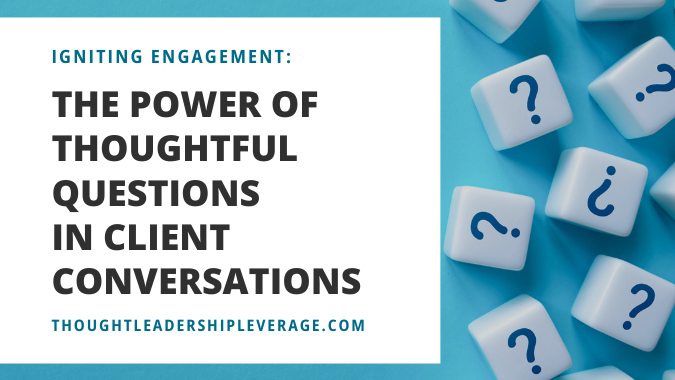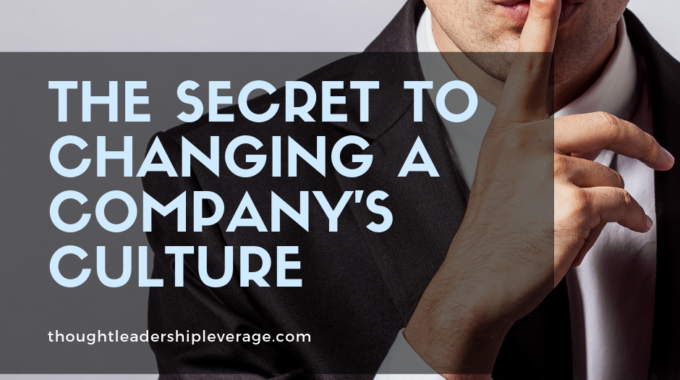In the world of thought leadership, we're the ones stirring the pot, sparking discussions, and…
Marketing By Deepak- Interview 8/15/10
Dgupta5150, Deepak Gupta LinkedIn, Marketing by Deepak Gupta, Tips by Deepak Gupta, Deepak Gupta social media, Deepak Gupta marketing via Enlightening Chat with Peter Winick.
Enlightening Chat with Peter Winick
Today, I have the pleasure of connecting with Peter Winick, Founder and CEO at Winick Enterprises, Inc – Thought Leadership Leverage. I would describe Peter as a proven entrepreneurial-minded leader who leverages the power of internal and external relationships to accelerate growth within emerging and high-potential companies that have powerful intellectual property. Accomplishments include start-ups, turnarounds, and M&A (in the b2b services sector)—with results driven by practical strategy, focused execution, and a disciplined method of cost control.
Peter, what led you to becoming a thought leader on thought leadership?
I started my off my career as an entrepreneur doing restaurant marketing. Entrepreneurs typically are not afforded the same structure and resources that a corporation provides to their employees. It’s lonely and you are responsible for your own development. I have always been the type to inherently want to learn something new and working with new business concepts intrigues me. My passion of working with entrepreneurs offering great content and finding opportunity coupled with my skills in marketing, business development and strategic partnerships got to me where I did today. Many authors and entrepreneurs do not have the desire or skills needed to properly develop a business plan. Authors are not taught how to market and are focused on content. The markets they serve are incredibly fragmented and competitive. Between speaking and writing, training and consulting as well as developing a brand and building a business they often get stuck. Many have built a great practice, but not a viable business. In a practice, the revenue is generated as a direct result of the work the guru does (like speaking or writing). A viable business has multiple revenue streams and it is the content that is leveraged across a variety of modalities to generate those revenue streams. One person can physically only do so much.
You can think of me as the Jerry McGuire for Nerds. I focus on helping them to do what they do best and I handle the business part. For instance, 99% of revenue that Ken Blanchard (author of Situational Leadership) earns is from work he is not specifically doing. His content is delivered through certified facilitators; companies license it across the globe. He has written dozens of books, developed tools and training programs that can be delivered in person or online. There are many ways that the content can be delivered and he has done an amazing job of figuring out the ones that are best suited for his work.
For an author, things are very fragmented. Book agents focus on book deals, speaking agents on booking keynote speeches, publicist on generating publicity. None of these folks is responsible for developing the right strategy for the author that touches on all components. . I am the orchestra conductor for all the moving parts and all need to be tied to a strategy. I help clients define their platform by uncovering what market(s) they should serve, making sure we have the right business structure in place to serve the market(s) and having the content developed and “productized” in an effective, impactful and profitable manner. My philosophy is the more time you spend on strengths; you will do better in your field. Authors are no different. Many hate business development and product development but love being the “face” of the company. I ask “How will be your product be consumed for next 12-18 months?” These channels can include e-learning, coaching, speaking, assessment tools and / or consulting.
Why do you enjoy helping enable thought leaders, authors and gurus to leverage their content?
First, I subscribe to the viewpoint of the “No Asshole Rule” meaning that I do not work with toxic individuals or shysters (i.e. make money in real estate with no money down). I enjoy working with clients that believe in their content and want to make a difference. It is gratifying to the ego to touch people with their work. They are passionate about their work and each, in their own way are trying to change the world. They have a level of evangelism and I want to help broadcast that message out to as many people as possible that can benefit from their respective work.
What is your view on companies that have questionable leadership (i.e. Goldman Sachs, BP)?
“Questionable leadership” is a subjective term. The question should be, “What is missing?” In the BP case, trust is missing. We have been fed weeks of lies and there is no sense of transparency, accountability or responsibility. BP should make it right to everyone by owning the problem and fixing it, investing in PR to tell us how sorry they are or how they are great corporate citizens of the planet is nonsense when we are watching toxins spew into the ocean daily.
As far as Goldman Sachs, the media is over-simplifying things. Not everyone at Goldman Sachs is greedy or unethical. In fact, a core part of Goldman’s culture is giving back via their foundation as well as executives that give to their communities in a variety of ways. Many of their most senior folks have gone on to careers in public service at the very highest levels of our current and past administrations.
Mistakes will happen, but there is a right way to handle things.
I noticed you were a Managing Director at Ferrazzi Greenlight. What was the most interesting project you worked on?
When “Never Eat Alone” came out, Keith’s personal brand was America’s Best Networker. We needed to change that. I think networking is great, but I think that the true meaning of networking has been distorted and it now is tactical and self-centered in terms of how it is written about and practiced. Eight out of ten people cringe at the idea of networking. Networking is really about relationships. It is about not shaking hands with one and holding a drink at a cocktail party (Martini Man). I want to get to know people and learn about their passions. Networking is perceived as genetic (charisma), but it is a learned skill. The methodology and mindset of networking is to be generous.
The first thing we did was not be in the “networking space”; what we did was create the “relationship space”. The mission was to help people develop and manage relationships that were meaningful to themselves both personally and professionally.
The second thing that we did that was critical was to figure out where we fit in the market. We decided to focus on the sales side of Fortune 1000 organizations and be a “bolt on” to whatever selling methodology they were already using. It was analogous to adding a lens to the telescope that enabled them to view their world and their business through the filter of “relationships”.
What is your opinion of workplace bullying? Do you have methods to train Leadership on more effective management techniques?
I think it is a spectrum. On one end of the spectrum are people being verbally abusive, on the other end is physical abuse. The root starts at a lack of communication amongst people and in the organizational silos that develop. People are myopic and different departments have a lack of understanding of each other as human beings. As humans, we may even avoid each other and our preconceived notions (as if everyone in finance is a jerk, or sales people do not “get it”) can manifest to bullying. A culture of trust and transparency prevents bullying from ever manifesting and infecting the corporate culture. People do not wake up every morning intentionally trying to figure out how to make each other’s life miserable.
Some companies will look the other way if someone is a producer. At some point, the producer is also a problem. Unfortunately, exceptions are made for producers and they need to be removed. A code of behavior needs to be enforced for everyone whether they are an administrative assistant or the highest producer at the organization…
Everything said by leadership is under a microscope. Even subtle jokes or how someone is perceived can make a big difference.
Who is your ideal client? And what is the best way for them to contact you?
Someone that is passionate about his or her content and looking to leverage his or her concepts into a viable business. What if their idea or passion could be made into a career? Some clients are tired of writing books and speeches and I help take their business to the next level by being smart. You connect with Peter on Twitter.
Posted by Deepak Gupta.





